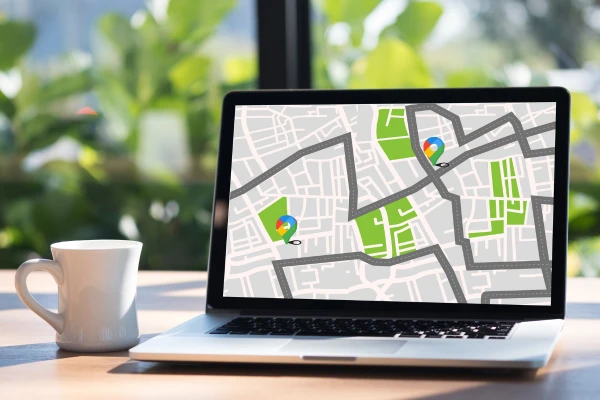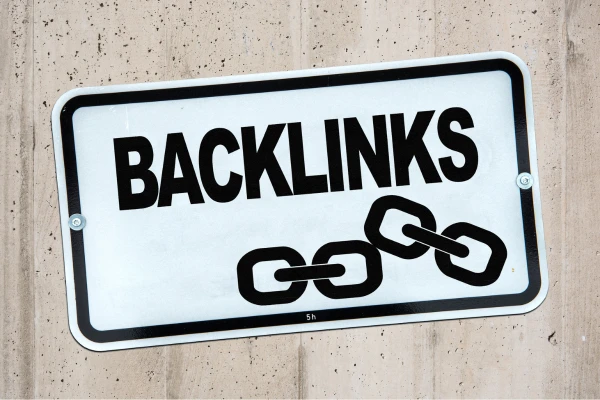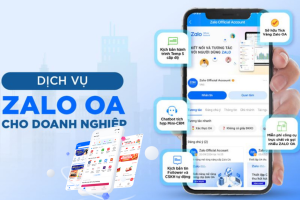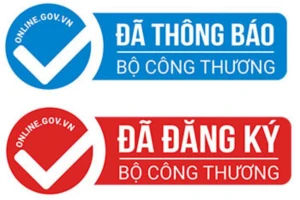Designing a Google SEO-Friendly Website: The Ultimate Guide for Long-Term Growth
In the digital age, where customers tend to “Google before they buy,” building a Google SEO-friendly website is not optional — it’s essential. A well-optimized website boosts search rankings, increases organic traffic, enhances user experience, and becomes a powerful asset in your digital marketing strategy.

This article will walk you through what makes a website SEO-friendly according to Google's standards, the core technical and content elements, and best practices for long-term performance.
What Is a Google SEO-Friendly Website?
An SEO-friendly website is built and structured in a way that helps Google easily crawl, index, and understand its content. It combines technical optimization, great content, mobile responsiveness, fast loading speed, and a clean user experience.
Why You Need an SEO-Optimized Website

Better Search Engine Visibility
An SEO-optimized site has a greater chance of appearing on the first page of Google, helping potential customers find you faster — without paid ads.
Enhanced User Experience
SEO best practices go hand in hand with clean design, fast performance, and intuitive navigation, keeping visitors engaged longer and increasing conversions.
Cost-Effective Marketing
Once your website ranks high, you get consistent organic traffic — reducing the need for expensive ad campaigns.
Stronger Brand Credibility
A professionally designed, SEO-friendly website positions your brand as trustworthy and knowledgeable in the eyes of both users and Google.
Core Components of a Google SEO-Friendly Website
Fast Loading Speed
Speed matters. Use compressed images, clean code, and high-quality hosting to ensure your website loads quickly.
Responsive Design
Your website must look and work great on all screen sizes, especially mobile, as Google uses mobile-first indexing.
Clean, Keyword-Rich URLs
Use short, descriptive URLs with relevant keywords, such as www.yoursite.com/google-seo-tips, instead of complicated links like www.yoursite.com/page?id=123.
SSL Security (HTTPS)
Google prefers secure websites. SSL certificates protect user data and boost trust and rankings.
Optimized Title and Meta Descriptions
Craft unique, compelling titles and meta descriptions that include your target keywords and encourage clicks in search results.

Proper Heading Structure
Use headings (H1, H2, H3) logically to outline your content. One H1 per page is ideal, supported by relevant H2s and H3s.
High-Quality Content
Write in-depth, useful, and original content tailored to your audience’s search intent. Avoid thin or duplicate content.
Optimized Images
Name your image files properly, add descriptive ALT text, and compress files for faster load times.
Internal and External Linking
Use internal links to help users and Google navigate your website. External links to reputable sources can also enhance credibility.
Sitemap and Robots.txt
Submit an XML sitemap and set up a robots.txt file to guide Google on which parts of your site to index or ignore.
Website Design Process with SEO in Mind

Keyword Research and Strategy
Understand your audience and target the right keywords during the planning stage to build relevant content and structure.
Logical Website Architecture
Create an intuitive site hierarchy with clear categories, pages, and internal links that make sense to both users and search engines.
UX/UI Design
Design should be clean, attractive, and aligned with brand identity. Make CTAs (call-to-actions) clear and user-friendly.
Clean, Lightweight Code
Choose SEO-friendly CMS platforms like WordPress, or custom code with lightweight frameworks for better control and performance.
Device and Browser Testing
Ensure your website looks and works well across all devices and browsers to avoid losing potential traffic.
On-Page Optimization
Apply on-page SEO techniques such as keyword placement, title and meta tag optimization, and internal linking.
Setup of Google Tools
Integrate Google Search Console and Google Analytics to monitor traffic, detect errors, and improve performance continuously.
Common SEO Design Mistakes to Avoid

Aesthetic-Only Design
A beautiful design without SEO is useless. SEO elements must be baked into every part of your website, not added later.
Keyword Stuffing
Using keywords excessively can hurt your SEO rankings. Always write naturally for users first, then optimize for search engines.
Thin or Low-Value Content
Content should be informative and engaging. Avoid pages with little substance, copied material, or outdated information.
No Internal Linking Strategy
Poor linking makes it harder for Google to understand your site structure and may result in lower indexation rates.
Neglecting Site Security and Maintenance
Outdated plugins, insecure code, or no backups make your website vulnerable to hacks and ranking drops.
Key SEO Signals Google Now Prioritizes
Core Web Vitals
Focus on Largest Contentful Paint (LCP), First Input Delay (FID), and Cumulative Layout Shift (CLS) — these affect loading speed and user interaction.
E-E-A-T (Experience, Expertise, Authoritativeness, Trustworthiness)
Content must reflect real expertise and provide accurate, well-sourced information to rank well.
Helpful Content Update
Google favors original content that solves user intent over mass-generated or superficial articles.
SEO Tools to Optimize Your Website
- Google PageSpeed Insights
- Google Search Console
- Screaming Frog SEO Spider
- Yoast SEO or RankMath
- Ahrefs / Semrush / Ubersuggest
Frequently Asked Questions
1. What is a Google SEO standard website?
It is a website designed following Google's best practices regarding page speed, structure, keywords, user experience, and security to improve search engine visibility and performance.
2. Why should I choose MIMA for SEO-optimized website design?
MIMA not only creates visually appealing websites but also provides end-to-end optimization, helping your website rank higher on Google and drive sustainable business growth.
3. Can SEO standard design really improve my search rankings?
Yes. Websites built by MIMA feature clean code, fast loading speed, mobile responsiveness, and SEO-friendly architecture—all essential for better Google ranking.
4. Will my website be mobile-friendly?
Absolutely. All MIMA websites are fully responsive, ensuring seamless performance across smartphones, tablets, laptops, and desktops.
5. Does MIMA provide SEO-ready content as well?
Yes. MIMA’s content team creates keyword-optimized, engaging, and Google-friendly content that saves you time while attracting more traffic.
6. Can I manage and update my website myself?
Definitely. MIMA uses user-friendly platforms like WordPress or custom CMS, allowing you to easily update your site without any coding knowledge.
7. Does MIMA offer hosting and domain registration?
Yes. We provide complete packages including design, hosting, domain registration, and ongoing maintenance—letting you focus on your business.
8. Are the pricing and costs transparent and affordable?
Yes. MIMA offers clear, upfront pricing with no hidden fees. You can choose a service package that fits your budget and business goals.
9. Will I receive support and maintenance after the website is done?
Yes. MIMA provides free technical support for 6 to 12 months, plus regular maintenance and optional upgrades as needed.
10. Who is MIMA’s web design service ideal for?
From online sellers, startups, and SMEs to growing businesses—anyone looking to improve their SEO and succeed digitally can benefit from MIMA’s services.
Contact Information:
MIMA DIGITAL SERVICE CO., LTD
Tax ID: 0318672839
Location: Hoc Mon, Ho Chi Minh City, Vietnam
Hotline/Zalo: 0909 035 333
Email: info@mimadigi.com
Website: https://mimadigi.com

























Share your review